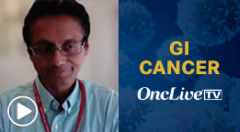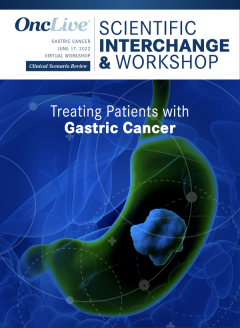
Dr. Shah on the Importance of Genetic Testing in GI Cancer
Manish A Shah, MD, discusses the importance of genetic testing in gastrointestinal cancer.
Manish A Shah, MD, director, Gastrointestinal Oncology Program, Weill Cornell Medicine, chief, Solid Tumor Service, co-director, Center for Advanced Digestive Disease, NewYork-Presbyterian, discusses the importance of genetic testing in gastrointestinal (GI) cancer.
It is important to conduct genetic testing for patients with GI cancer as soon as they're diagnosed, Shah says. Lack of access to adequate tissue and the time needed for testing adds to the importance of testing as soon as possible, since treatments can vary depending on the presence of actionable biomarkers, Shah says.
HER2 testing is done by immunohistochemistry (IHC), and if a patient tests IHC 3+, they are considered HER2-positive, Shah notes. If a test returns as IHC 2+, then patients should receive a FISH test to confirm HER2 positivity, Shah explains. It is also important to test for mismatch repair deficiency, and if testing is done using a next-generation panel, patients should also receive microsatellite instability testing, Shah adds.
Furthermore, it is important to test for PD-L1 status by IHC, and a patient’s PD-L1 combined positive score can also aid treatment decisions, Shah continues. Notably, pembrolizumab (Keytruda) is approved for the treatment of patients with a tumor mutational burden (TMB) of 10 or higher, so evaluating that with testing is also critical, Shah concludes.








































